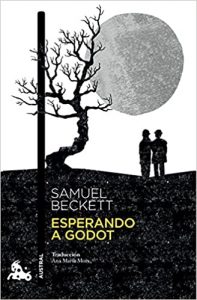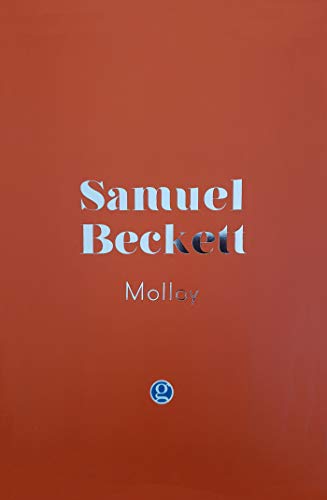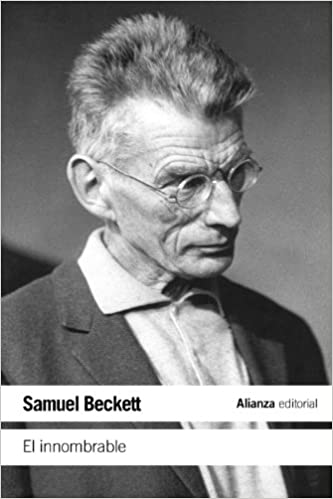A Samuel Beckett se le puede tildar de pesimista, de nihilista, de oscuro y simbólico, de cultivador del absurdo. Y, sin embargo, nada más vitalista que sobrevivir para contarlo. Nada más humano que intentar calmar los demonios internos y los miedos generales propios de guerras y postguerras. Para espíritus inquietos como el de Beckett una opción era experimentar con la literatura en busca de nuevos horizontes, puntos de fuga con los que salir de una realidad que hacía agua por todos lados, la Europa de mediados del siglo XX.
Escritor promiscuo en géneros narrativos, cultivó la poesía, la novela y la dramaturgia. Pero siempre con esa intención rupturista. En Beckett se intuye una especie de desencanto con la propia condición humana capaz de provocar los desastres de las guerras. Los cambios de registro y esa intención experimental, que en el caso de Becket acabó derivando en su reconocimiento como genio de las letras, se sustentan en gran manera en el desencanto, la desconfianza, el hartazgo, la búsqueda del cambio, la ridiculización de las formas, la irreverencia y la rebeldía…
Reading Becket supposes participating in that atrocious confrontation of the creative spirit with the harshness of destruction and the consequent misery that took hold of the spiritual, the moral and even the physical.
Yes. The world of that twentieth century seemed to regress (I don't know if it has really evolved many times). The decadence seemed to take over everything. But the art and in this case the literature of the twentieth century were there looking for the world reset button.
Top 3 Recommended Works of Samuel Beckett
Waiting for Godot
Reading a play has a special point. The preponderance of the dialogue, with the annotations of the dramatization, have you completely naked intellectually in front of the characters. There is no omniscient narrator, neither first nor third person ... everything is you and some characters that speak in front of you.
You have to be in charge of locating the set, of imagining the movements of each character on the tables. There is no doubt that the thing has its charm.
In the case of Waiting for Godot, the existentialist background of the narrative has you in that same plane of direct observation of the vagabonds Vladimir and Estragon and makes you participate in their futile, absurd wait, on the edge of a road. Godot never comes and you wonder if it was because the homeless people never got the message for the date.
Other characters like Pozzo and Lucky take advantage of the useless wait to announce the arrival that will never take place. And in the end you can understand that we are all those bums.
And that fate keeps us confused, if it exists and that really, despite everything, living is waiting for something that may never come ... Irony, caustic humor and delusional conversations that, however, we can all savor, with the acid aftertaste of the truest truth.
molloy
As the beginning of "The Trilogy," Beckett's most iconic set of novels, the truth is that the novel puzzled and still puzzles.
Su trama experimental se nutre del monólogo, con la normal asociación que tiene este recurso para la evocación, para el pensamiento aleatorio, para el desorden… pero también para la síntesis brillante, para el salto de barreras de las estructuras de pensamiento habituales que nos conducen a la lógica, al etiquetado y a los prejuicios.
Molloy es un vagabundo que nos conduce durante la primera parte de la novela. Jacques Moran es una especie de policía que anda tras la pista de Molloy. Los motivos que lo conducen tras los pasos de Molloy confunden al lector que pueda esperar un hilo claro. La confusión es precisamente el hilo, la trama, la composición que permite la deriva de difícil cronología.
Y lo fundamental es que terminas de leer si llegar a comprender el fundamento de Molloy y de Moran. Quizás la misma persona, quizás víctima y asesino en una historia contada al revés. Lo importante es el extraño ínterin en el que has profundizado en la piel de unos personajes cuyo fin no tienes porqué haber entendido.
The nameless
I skip the second part of the trilogy to rescue its tremendous ending. With this novel Beckett closed his most incisive experimental bet. The end of a trilogy like this could only be finished as Beckett did.
The final sentences point to a more theatrical, over-acted soliloquy, the same one that everyone can pose in this world as the curtain goes down and the oxygen stops reaching where it has to go, thus posing the most important doubts, the questions. true ... the light.
The rest of the novel takes up the previous monologue that is subjective existence, under the fatalistic, crude and lucid prism of Beckett. Again we ignore the order and the plot, we guess the chronology because we need it to think when reading, everything else is part of the experiment.



